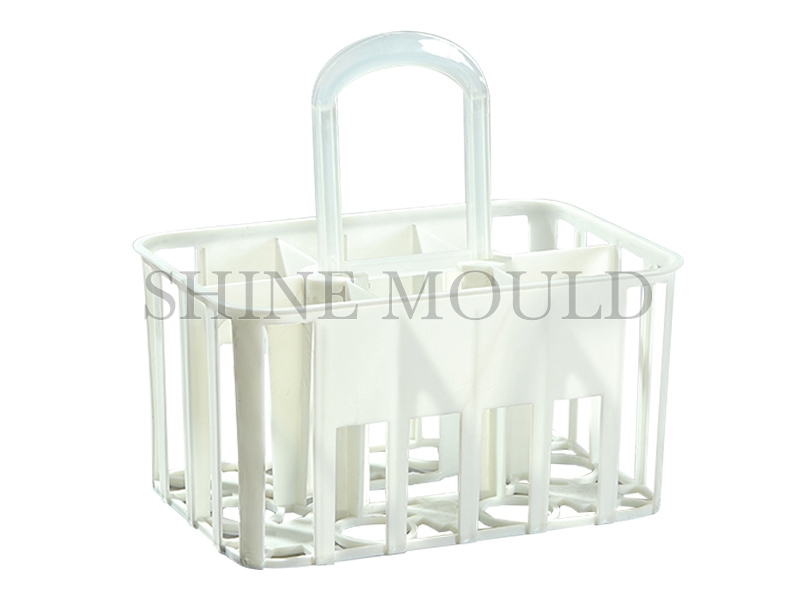Stacking Up Efficiency: The Role of Crate Moulds in Agriculture and Logistics
High Quality Bottle Crate Mould Maker
"Crate moulds have become an indispensable tool in various industries, particularly in agriculture and logistics, where the efficient transportation and storage of goods are critical. These moulds are used to produce durable and versatile crates that can withstand the rigors of transportation and storage, ensuring the safe handling of products from farm to market. The application of crate moulds in these sectors is multifaceted, offering numerous benefits that enhance operational efficiency and reduce costs. This article explores the various applications of crate moulds in agriculture and logistics, highlighting their importance and the advantages they bring to these industries.
In agriculture, crate moulds play a crucial role in the handling and transportation of fresh produce, such as fruits and vegetables. The use of crates made from crate moulds ensures that the produce is protected from damage during transit, maintaining its quality and extending its shelf life. These crates are designed to be stackable, which maximizes storage space and reduces the need for additional handling equipment. The durability of crates made from crate moulds also means they can be reused multiple times, reducing the need for frequent replacements and lowering overall operational costs.
The versatility of crate moulds is another significant advantage in the agricultural sector. These moulds can be customized to produce crates of various sizes and shapes, catering to the specific needs of different types of produce. For example, crates designed for delicate fruits like strawberries may feature additional padding and ventilation to prevent bruising and ensure proper airflow. On the other hand, crates for hardy vegetables like potatoes may be designed with reinforced corners and edges to withstand heavy loads and rough handling. This customization allows farmers to optimize the storage and transportation of their produce, ensuring that it reaches the market in the top possible condition.
In the logistics industry, crate moulds are equally important, particularly in the transportation of goods that require careful handling and protection. Crates made from crate moulds are ideal for shipping fragile items, such as electronics, glassware, and automotive parts, as they provide a secure and stable environment that minimizes the risk of damage. The robust construction of these crates ensures that they can withstand the stresses of transportation, including vibration, impact, and environmental factors like humidity and temperature fluctuations. This reliability is essential for maintaining the integrity of the goods being transported and reducing the likelihood of costly damages.
The stackability of crates made from crate moulds also offers significant advantages in logistics. These crates can be easily stacked and secured, increasing the use of cargo space and reducing the number of trips required to transport goods. This efficiency not only lowers transportation costs but also reduces the carbon footprint associated with logistics operations, contributing to sustainability efforts. The ease of stacking and unstacking also simplifies the loading and unloading process, reducing the time and labor required for these tasks.
The durability and reusability of crates made from crate moulds further enhance their value in logistics. These crates can be used multiple times without significant degradation, reducing the need for frequent replacements and minimizing waste. The long lifespan of these crates also translates to lower overall costs, as the initial investment in crate moulds can be spread over many years of use. Additionally, the modular design of crate moulds allows for easy customization and adaptation to different types of goods, ensuring that logistics operations can be tailored to meet specific requirements.
The use of crate moulds in both agriculture and logistics also promotes standardization and consistency. Standardized crates ensure that goods can be easily identified, sorted, and transported, reducing the likelihood of errors and delays. This consistency is particularly important in large-scale operations, where the efficient handling and transportation of goods are critical to maintaining productivity and profitability. The use of standardized crates also facilitates the adoption of automated systems, such as conveyor belts and sorting machines, further enhancing operational efficiency.
In conclusion, crate moulds are a vital component in the efficient and cost-effective handling and transportation of goods in agriculture and logistics. Their durability, versatility, and reusability make them an ideal choice for protecting and transporting a wide range of products, from fresh produce to fragile items. The ability to customize crates to meet specific needs ensures that these industries can optimize their operations, reducing costs and enhancing efficiency. As the demand for reliable and sustainable transportation solutions continues to grow, the importance of crate moulds in these sectors will only increase, making them an essential tool for modern agriculture and logistics operations."




 Search...
Search... English
English


.jpg)
.jpg)
.jpg)


